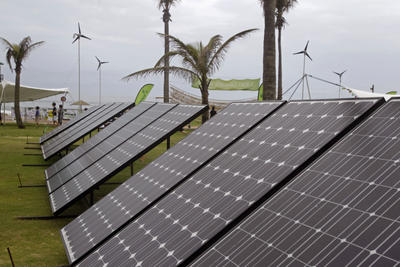The next conference, Cancun 2010, was of value largely because it ratified the 2009 agreement, which, due to the blocking action of a small number of countries, had been noted but not formally agreed to at Copenhagen.
And so the annual climate conference circus rolls on, this year to Durban, South Africa. What should we expect of Durban?
Two points, often overlooked, need to be kept in mind. The first is that we now have an agreement on the way forward for the world to combat climate change. Countries representing 80 per cent of emissions have signed up to emissions control targets, and developed countries have promised billions in assistance to poorer countries for both mitigation and adaptation. There are still details to be worked out (and there always will be), but it is more than the current framework.
The second point is that we now have a way of regularly updating and developing the agreements already in place. For better or for worse — and one can argue the case both ways — the world has decided, at least for the foreseeable future, not to negotiate a new treaty for climate change. Instead, it depends on the less formal, but also less binding, approach of relying on decisions made at these annual meetings, as they are officially recorded and agreed to by all parties.
These two points imply that there will be no major breakthrough at Durban — because there is no major breakthrough to be had. Successful annual climate change conferences would be those which enable further detailing of agreements already in place, and, increasingly, countries to report on efforts aimed at meeting their self-imposed targets. It is a process of building confidence and trust.
The expectations of many in the media and some in politics are very different. There is no shortage of commentators who want to build up Durban, or rather set it up for failure, by saying that it will be a success only if there is a breakthrough.
Although we should not expect a breakthrough, and should not require one in order to judge Durban as a success, this does not mean Durban cannot fail.
The progress over the last few years has only been possible because disagreements on other issues have been set aside. In particular, there is a fault line in the negotiations between those who want to see a second commitment period for the Kyoto Protocol (a so-called Kyoto II), and those who do not. As the first commitment period (that is, the first period in which countries commit to reduce their emissions) expires in 2012, this issue is pressing.
Developing countries, including the powerful BASIC group (Brazil, South Africa, India and China) want to see a second commitment period. They view the Protocol as the cornerstone of international action on climate change, which should be sustained rather than allowed to fade away.
Those who disagree are largely those to whom the first commitment period applied, namely, the rich countries. The US has not ratified Kyoto. Canada, Japan and Russia did, but have already declared they will not take on a second commitment period. That leaves Europe, Australia and New Zealand. They have not ruled out a second commitment period, but their support is conditional on other major emitters also promising to take on legally binding commitments. There is no sign of this happening.
EU climate commissioner Connie Hedegaard stated recently: ‘Some seem to think that if only Europe took a second commitment period, that would make Durban a big success. The world should not fool itself. It’s only interesting to keep Kyoto alive if somebody is following. Europe represents only 11 per cent of global emissions. What will the other 89 per cent do?’
Europe will only sign onto Kyoto II if other countries follow suit, and agree to sign on to a similarly binding agreement in later years. But there is no sign that either the US or the BASIC countries are willing to make such a commitment. Moreover, Europe faces the possibility of severe recession, and there are even fears that Europe might break apart politically. It seems impossible that the EU would promise to sign on to Kyoto II at this point in time. And without the EU, Kyoto II simply will not happen.
China has signalled preparedness to consider a legal framework for developing-country targets at some point in the future. But this is conditional on Kyoto II and the US taking on legally binding targets. And whether China is prepared to go beyond domestic laws to a binding international treaty is still unknown.
All in all, there are so many ifs and buts that an agreement on Kyoto II is not a likely scenario, nor is it the outcome by which Durban should be judged. The real test for Durban is whether the world can continue to entrench and progress its newfound, bottom-up approach to climate change. This requires Durban to avoid an implosion over disagreements concerning Kyoto’s future and its alternatives. Avoiding this will in itself mean success.
Stephen Howes is Director at the Development Policy Centre, the Australian National University. Frank Jotzo is a Senior Lecturer and Director at the Centre for Climate Economics and Policy, the Australian National University.
Earlier versions of this article appeared here on the Development Policy Blog and here in The Australian

